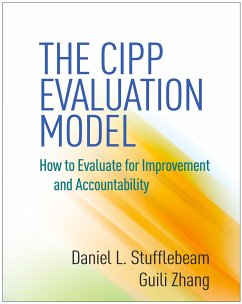
Missing Data
A Gentle Introduction
Versandkostenfrei!
Versandfertig in über 4 Wochen
44,99 €
inkl. MwSt.
Weitere Ausgaben:

PAYBACK Punkte
22 °P sammeln!
While most books on missing data focus on applying sophisticated statistical techniques to deal with the problem after it has occurred, this volume provides a methodology for the control and prevention of missing data. In clear, nontechnical language, the authors help the reader understand the different types of missing data and their implications for the reliability, validity, and generalizability of a study's conclusions. They provide practical recommendations for designing studies that decrease the likelihood of missing data, and for addressing this important issue when reporting study resu...
While most books on missing data focus on applying sophisticated statistical techniques to deal with the problem after it has occurred, this volume provides a methodology for the control and prevention of missing data. In clear, nontechnical language, the authors help the reader understand the different types of missing data and their implications for the reliability, validity, and generalizability of a study's conclusions. They provide practical recommendations for designing studies that decrease the likelihood of missing data, and for addressing this important issue when reporting study results. When statistical remedies are needed--such as deletion procedures, augmentation methods, and single imputation and multiple imputation procedures--the book also explains how to make sound decisions about their use. Patrick E. McKnight's website offers a periodically updated annotated bibliography on missing data and links to other Web resources that address missing data.
Support
Bitte wähle dein Anliegen aus:
Rechnungen
Bestellstatus
Retourenschein
Storno













